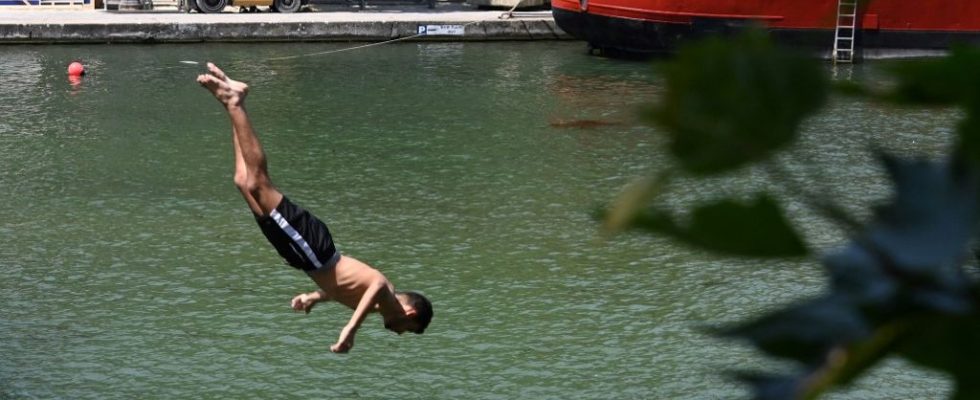With between 10 and 12 degrees in Paris on January 25, could the heatwave hit this summer during the Olympics? Well, it’s a big yes for researchers from the Climate and Environmental Sciences Laboratory (LSCE), who are warning of a potential disaster scenario. In a world where global warming is a daily reality, scientists wanted to calculate what could be the worst possible heat wave over a period of two weeks in the Paris region for the Paris Games (July 26-August 11).
“The motivation from the start was to start from the observation of the heatwave of 2003, which surprised us all by its magnitude” and which “no one thought was possible before it happened,” explains Pascal Yiou, from LSCE, the lead author of the study published in the journal Npj Climate and atmospheric science.
Questioned by AFP, the organizers of the Olympic Games say they are “fully aware of the impact that climate change can have on the competitions”. “The heatwave and extreme weather conditions are a hypothesis that we take into account and that we anticipate as much as possible, to take the necessary measures,” they indicate. The organizers, who collaborate with Météo-France and Santé publique France, rely in particular on historical data for each site.
Worse than in 2003?
Is it possible to do worse than the 2003 average? “Temperatures which exceed the 2003 record by around 4°C” in Ile-de-France “are possible”, conclude the authors in the article. “In twenty years, the climate has changed and the idea was to alert the public authorities that something significantly worse than 2003 could happen, that it is possible,” underlines Pascal Yiou.
During the heatwave of 2003, hospitals were overwhelmed by an influx of patients and the episode resulted in 15,000 deaths, according to estimates. For nine consecutive days, Paris then experienced temperatures above 35°C during the day, with little coolness at night. “In the 20th century, it was not possible to exceed this record, but now we can not only reach it but also exceed it with a fairly high probability, close to 1/100,” estimates the researcher.
A worst-case simulation exercise
For their study, the researchers for their part carried out a worst-case simulation exercise based on climate models used in particular by the climatologists of the IPCC (Intergovernmental Panel on Climate Change, mandated by the UN). For such an extreme heat wave to occur, there would need to be a conjunction of a stable anticyclone and a meteorological phenomenon called a “cold drop”, capable of pumping very hot air from the Sahara towards France, they specify. they.
But this is by no means a forecast of the weather for next summer. Météo-France for its part only publishes “major trends” over three months and we will therefore have to wait until April to have a fairly vague indication for July. “We will not know in April if/when there will be heatwaves in July, we will have a trend towards a similar scenario, below or above normal,” we tell Météo-France.
“Case by case” decisions
The Tokyo Olympics (2021) were the hottest recorded since 1952 but with limited effect, since they took place without spectators due to travel restrictions put in place to limit the spread of Covid-19.
For this edition, the organizers say they have planned “specific measures” according to the sports. If arrangements are rather easy for indoor events (air conditioning or installation of sails on the glass roof of the Grand Palais for example), those outdoors could need to be “reprogrammed”. “The decision will be taken on a case-by-case basis”, it is indicated, recalling that “these decisions have already been observed during previous editions of the Games, notably in Tokyo”. The timetable for the Women’s Marathon was therefore brought forward due to the high temperatures.

